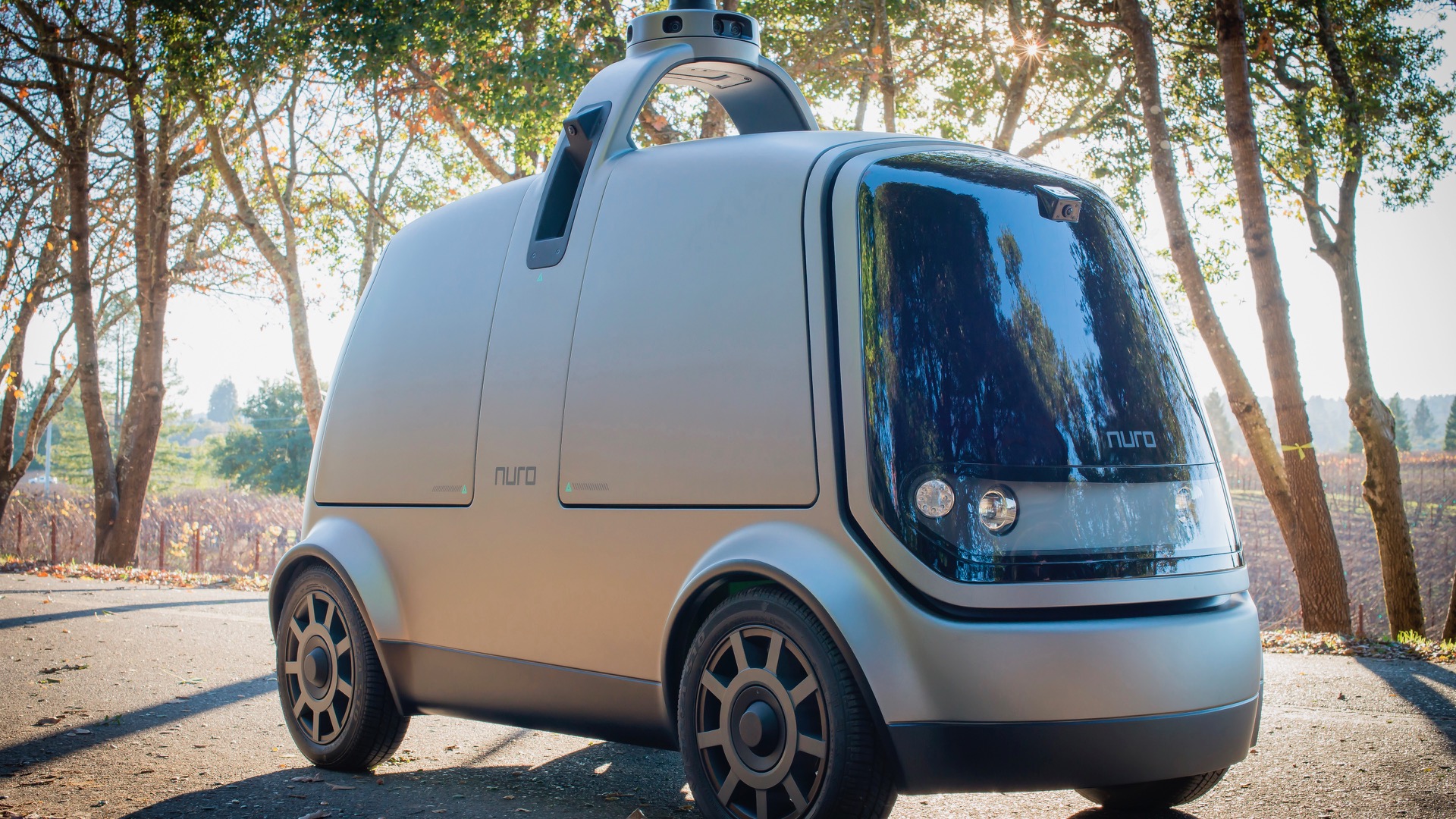

We may earn revenue from the products available on this page and participate in affiliate programs. Learn more ›
Your groceries may get to ride in a driverless vehicle before you do. Supermarket chain Kroger is teaming up with startup Nuro to launch a driverless delivery service. It will eventually use Nuro’s purpose-built delivery vehicles, which have plenty of room for fruits and veggies, but no driver’s seat.
However, when the service launches in a yet-to-be-named city this fall, it will use vehicles with human backup drivers onboard. Customers can track the vehicles and unlock them to get their groceries using a Nuro app or Kroger’s existing online delivery portal. But customer’s shouldn’t expect the vehicles’ human occupants to help them with their groceries.
If truly autonomous vehicles ever enter mainstream use, there won’t be anyone onboard to assist customers getting deliveries. Even if it may seem a little rude at first, Nuro wants people to get used to that idea, and so its human backup drivers won’t interact with customers, co-founder and Google self-driving car project (now Waymo) veteran Dave Ferguson told The Verge. However, they will intervene if something goes wrong with the vehicle. It’s similar to the operating procedure used by Ford for its pilot delivery service in Miami.
Nuro and Kroger hope to eliminate human backup drivers and begin using Nuro’s R1 delivery vehicle. Essentially a box on wheels, the R1 (which will be renamed) is about as tall as a Toyota Highlander, but only half as wide. This was meant to provide adequate cargo space while creating a so-called “buffer” zone so the R1 can maneuver more easily around obstacles.
Kroger operates 2,800 supermarkets in 35 states, with a claimed nine million customers per day. However, it’s unclear where the driverless delivery service will operate. Only Arizona and California have explicitly legalized the operation of autonomous vehicles on public roads without human drivers onboard. Nuro will also need to map streets and plan routes in an area using a fleet of six conventional cars modified with autonomous-driving systems before it can start service.
Still, Nuro has come a long way in a short time. Started by Ferguson and another Google autonomous-driving veteran, Jiajun Zhu, it only emerged from stealth mode in January. Now it’s on the fast track to launch a commercial-scale delivery service using autonomous vehicles, a concept that has already attracted the likes of Ford, Honda, and Toyota.
